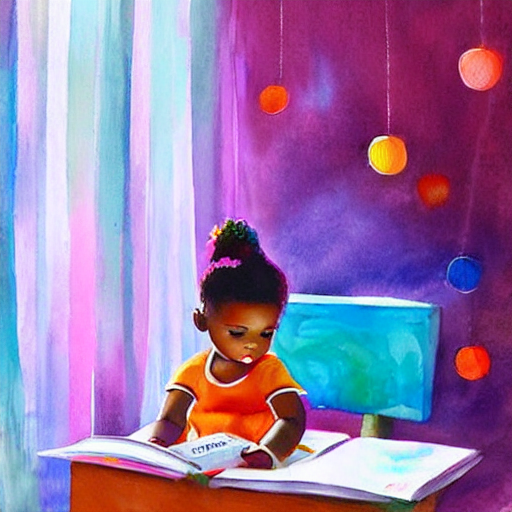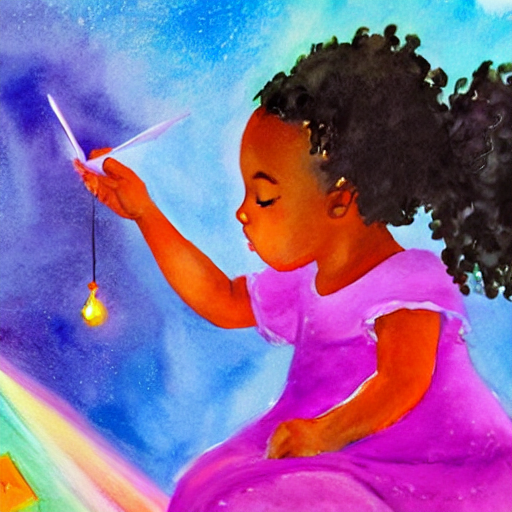I am a mom blessed with gifts and talents beyond my wildest expectations. My four year old can read in three languages and is accessing books in many more. To be honest, it’s a bit intimidating to me! How did I get so lucky?
Well, after several years of trial and error, I’ve come to realize that it wasn’t luck at all. It was my intentional decisions as a mother that gave my daughter the opportunity to grow into this amazing reader she is today.
In this article, I want to share what I do to nurture my four year old’s reading passion. I hope that my strategy will help other parents, who are trying to raise amazing readers of their own. So, let’s get started!
Exposing My Child to Reading: Books, Storytelling, & More
When I discovered my daughter was a gifted reader at the tender age of four, I was thrilled and excited to nurture her passion for books. Encouraging her love of reading has not been difficult as she is perpetually surrounded by literature and sources of knowledge.
My first step was to build a comprehensive library that covers both fiction and non-fiction topics. This meant stocking up on classic literature, contemporary books, science experiments, and cook books. Whenever there’s a new book in town, she can’t wait to get her hands on it!
In addition to this, I involve her in storytelling sessions. We experiment with different voices and characters as we read books aloud together. This helps bring the text alive while increasing her interest in reading. We do this every night before tucking her into bed – it’s quite a joy seeing how excited she gets when I read from her favorite stories.
Finally, my daughter gets excited when I take out the globe to learn about different countries and cultures which leads us onto more interesting topics such as history or even making foods from different countries. All these activities help increase my daughter’s vocabulary size which eventually translates into better reading skills.

How to Make Reading Enjoyable and Not Overwhelming
When it comes to formally teaching my daughter how to read, I keep it simple. I encourage her to sound out unfamiliar words, and together we’ll look at the words and focus on the sounds of each letter. We’ll take our time, and I’ll break down bigger words into little chunks, like “ele-phant.” That way, she doesn’t get overwhelmed or frustrated.
We also make sure to include lots of fun activities and conversations around books so that reading is something she looks forward to doing. We talk about the characters or themes in books that we both enjoyed. She loves making predictions about what she thinks will happen next – which helps her remember words more easily. We also play word games with sight words like ‘cat’ or ‘book’ so that she can practice her reading skills in a way that’s relaxed and enjoyable for her.
These methods have worked well for us in getting my daughter interested in reading—it’s something we both look forward to every day!
Helping My Child Develop Reading Comprehension Skills
When my daughter started reading, I was really excited about helping her develop her reading comprehension skills. I focused on inspiring my daughter to keep reading more books by having conversations about the books we read. Those conversations took some time at first, but as she got better at understanding what she read, I switched to stimulating conversations with her that have enriched her understanding of the stories she has read.
I also started to ask her questions like “what do you think this story is trying to tell us?” or “what message or meaning are we getting from this story?”. These discussions have been particularly helpful when it comes to teaching my daughter important life lessons like understanding emotions and appreciating diversity.
I also believe that having a diverse range of books in our house has been an important factor in helping her develop excellent reading comprehension skills. We have a collection of books for children, adults and even graphic novels that range in various topics from Black history and social justice, to STEM concepts and bilingual Spanish/English books. Although my four year old cannot read all the books in our house, she is exposed to different writing styles and authors and gets a chance to learn new vocabulary words through our discussions. Having access to these books has definitely helped make reading fun for my daughter and encouraged her curiosity even more.

Encouraging an Interest in Different Types of Books
I firmly believe that exposing my daughter to various types of books encourages her reading and comprehension skills. I often select books that feature diverse topics, cultures, and characters so that my daughter can appreciate how unique people around the world are.
In addition to their content, I also focus on selecting fun books with different formats and page layouts. My daughter loves the pop-up books with their intricate 3D art because she can explore each page from multiple angles. She also likes graphic novels that feature a mix of colorful illustrations and words. And she definitely enjoys interactive books because they let her do things like match shapes, count items, and answer questions.
No matter what type of book I select for her, I always make sure to provide additional activities for her to explore related to the book’s content and format. With pop-up books, we discuss the story while exploring each 3D design together. When it comes to graphic novels, we look at the pictures and analyze what they tell us about the characters or plotlines before looking at words on the pages. For interactive titles, we take turns guessing answers or answers questions together before flipping the page to check our results.
By providing literature featuring different topics and formats, my daughter is able to expand her horizons in more ways than one!
Exploring the Benefits of Multi-Lingualism
It’s not just within the English language that my daughter can read, but also in Spanish. We are raising a multi-lingual child and I’m excited to explore the cognitive benefits of it.
Research has shown that teaching a child two languages from a very young age can help develop both higher-order thinking and problem solving skills, such as analytical skills and creativity. Additionally, bilingual children tend to be more open-minded and intellectually curious compared to monolingual counterparts. I’m hopeful that this curiosity will help my daughter stay engaged in learning activities in the future.
Benefits beyond Academics
Beyond academics, being able to speak two languages provides cultural and personal benefits as well. The process of learning another language is a great way to foster appreciation for other cultures and gain insight into one’s own cultural identity. It also helps build communication skills, confidence and self-esteem—all of which I believe are essential parts of growth in any individual’s life.
My daughter may not fully understand the implications of being bilingual yet, but I am confident that she will reap the rewards along her educational journey. For now, reading together in both English and Spanish is an integral part of our lives—and it’s something we both look forward to every day!
Nurturing an Early Love for Writing
One way to nurture an early love for writing is to involve my four-year-old daughter in the writing process. Writing can be both fun and therapeutic for adults, and it can be a fun learning activity for children as well. I make sure to include her in all steps of the writing process, from selecting the topic and doing research to deciding what to write about and finally crafting words on paper.
Every time we sit down to do some writing together, I make sure to:
- Ask her questions about the topic or story we are discussing
- Break down the process into smaller chunks so that it’s easier for her to understand
- Give her helpful feedback on her work
- Let my daughter take control of the project and come up with ideas that she can execute independently
By involving my daughter in this creative process, I am helping her learn valuable skills like problem solving, creativity, critical thinking, self-confidence and communication. All of these skills will be essential when she begins school and later life.
Being a parent of a gifted child is both rewarding and challenging, as I have quickly come to appreciate. I believe that as parents, it’s our job to help foster the strengths our children have, pushing them to reach their goals and helping them reach their full potential. In my child’s case, it has meant encouraging her to read from a very young age and to seek out mentors and teachers to help her develop her skils further.
Ultimately, I’m so proud of my daughter and all she has accomplished – and I’m excited to see what the future holds for her. As I’ve seen with her, with the right encouragement and dedication, all children can succeed, no matter their backgrounds or abilities. With little ones like my daughter, the sky’s the limit!